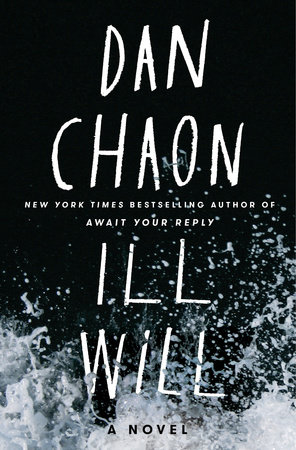Interview: Dan Chaon
 Midwestern Gothic staffer Meghan Chou talked with author Dan Chaon about his book Ill Will, writing from multiple perspectives, balancing suspense and tension, and more.
Midwestern Gothic staffer Meghan Chou talked with author Dan Chaon about his book Ill Will, writing from multiple perspectives, balancing suspense and tension, and more.
**
Meghan Chou: What’s your connection to the Midwest?
Dan Chaon: I grew up in Western Nebraska—in Sidney, just north of Sterling, Colorado, about a hundred miles east of Cheyenne, Wyoming. I went to undergrad at Northwestern, in Chicago. I have lived in Cleveland since 1990. So I have three very different ties, but all of them definitely a kind of “Midwestern.”
MC: Ill Will is set in the city of Cleveland, Ohio, where you currently reside. Why did you decide the Midwest was a valuable setting for your work?
DC: I’m not sure it’s a “decision,” honestly. I think as a writer I’m stuck with my landscape the same way I’m stuck with my eyes or my skin. But it’s definitely meshes with my work in a vital way, to the extent that I don’t think most of my stories could really be set anywhere else.

MC: Ill Will introduces us to Dustin Tillman, a psychologist in the suburbs of Cleveland. He says, at one point, “We are always telling a story to ourselves, about ourselves.” Do you create characters that reflect a part of your personal story or do you maintain a distance from your characters?
DC: Both, I think. Dustin is a lot like me in many ways, circa 2010—a widower living in Cleveland with two teenaged sons. At the same time, Dustin’s backstory is quite different, and so is the present action of the novel. Maybe you could say that I use my personal life as a battery to power these very fictional, fantastical stories.
MC: Dustin Tillman finds himself tangled up in two murder mysteries from different time periods and in contrasting circumstances. One, in the past, involves his adopted brother, Rusty, who Dustin accused of murdering their parents, aunt, and uncle. The other, in the present, involves a patient of his who draws him into a novice investigation. How do the murders relate and trigger actions and feelings in Tillman?
DC: That’s kind of a spoiler question. I don’t want to ruin the surprise.
MC: What difficulties did you encounter in weaving together multiple narratives through the perspective of one character?
DC: I don’t usually use one character. All my novels have been multiple perspective—it’s a trick that I’ve tended to go back to—primarily because I’m writing about stories that actually can’t be told by one person. I tend to write about characters who are secretive, or liars, or self-deluded, and with that kind of person we always need to see multiple sides.
Ultimately, I think the issue with this kind of book is that once you have multiple narrators, you have multiple narratives, and things can spread and branch out too diffusely. There has to be a strong central plot to keep it all bundled together. The main struggle for me is trying to keep it focused, rather than following an extraneous thread that catches my attention.
MC: How do you provide and draw out suspense without killing the tension?
DC: I think you make an interesting distinction between suspense and tension, but it’s a complicated and subtle difference. They’re both about wanting to know what happens next but I’m guessing that what you’re suggesting here is that “Suspense” = withheld information of some sort, and “Tension” = willingness to turn pages?
I think that’s the trickiest balance, and I always have a hard time with it. I’m tolerant of a lot of ambiguity and uncertainty, but a lot of readers aren’t. There have to be little nuggets or bread crumbs along the way that make them feel like they’re making progress in putting the puzzle together, or folks get frustrated.
I have to hope for a reader that, like me, enjoys a certain level of suspension that may not ever fully be answered. Otherwise, “tension” feels mechanical, like one of those first-person shooter video games from the 1990s, where you’re just on a single path through the level on your way to the big battle with the boss. But for me, the questions have to be bigger and more compelling than any one solution.
MC: What’s the most important advice you give your creative writing students at Oberlin College?
DC: Read.
MC: What’s next for you?
DC: Two new novels, and possibly a limited TV series based on Ill Will.
**
Dan Chaon‘s most recent book is Ill Will, a novel. Other works include the short story collection Stay Awake (2012), a finalist for the Story Prize; the national bestseller Await Your Reply and Among the Missing, a finalist for the National Book Award. Chaon’s fiction has appeared in Best American Short Stories, The Pushcart Prize Anthologies, and The O. Henry Prize Stories. He has been a finalist for the National Magazine Award in Fiction, the Shirley Jackson Award, and he was the recipient of an Academy Award in Literature from the American Academy of Arts and Letters. Chaon lives in Ohio and teaches at Oberlin College.






